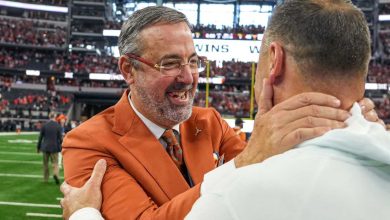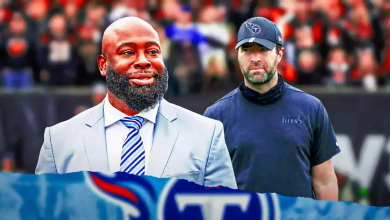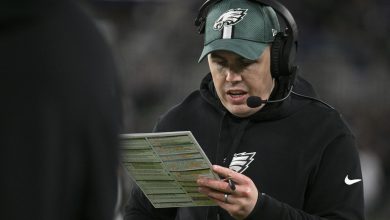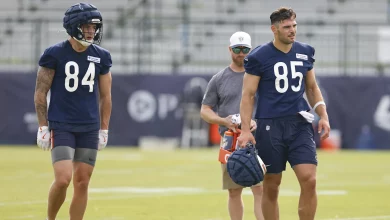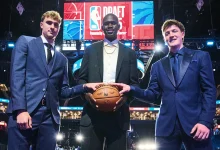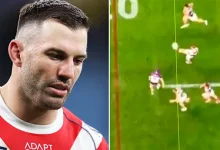Ray Lewis. Lewis played for the Hurricanes from 1993-1995, and his impact on the team and in the NFL is widely recognized. He was a two-time, first-team All-American and ultimately a Hall-of-Fame NFL player.

Ray Lewis is widely regarded as one of the greatest linebackers in football history. His journey began at the University of Miami, where he played for the Hurricanes from 1993 to 1995, laying the foundation for a legendary career that would eventually see him enshrined in the Pro Football Hall of Fame. Lewis’s impact at Miami was profound, both on and off the field, and his influence carried over into his professional career, where he became a symbol of toughness, leadership, and relentless intensity. His story is not just about personal achievement but also about the way an elite athlete can shape the culture and success of a team at every level.
When Ray Lewis arrived at the University of Miami, the program was already well-established as a national powerhouse, but it was facing some challenges during the early 1990s. The Hurricanes had seen incredible success throughout the 1980s, but by the time Lewis joined, they were seeking to rebuild and return to dominance. Lewis’s presence as a linebacker was immediately felt. His combination of size, speed, instincts, and work ethic made him an intimidating force on defense. He was a natural leader, vocally commanding the defense and inspiring teammates through his passion and intensity.
Lewis’s college career was marked by rapid progression and increasing dominance. By his sophomore and junior years, he had established himself as the heart of Miami’s defense. He was known for his ability to diagnose plays quickly, make tackles all over the field, and deliver crushing hits that rattled opponents. His instincts and football intelligence set him apart, allowing him to read offenses effectively and anticipate where the ball was going. This skill made him a versatile linebacker who could excel in both run-stopping and pass coverage.
Throughout his time at Miami, Lewis earned numerous accolades. He was a two-time first-team All-American, an honor reserved for the very best players in college football. This recognition was a testament not only to his physical abilities but also to his impact on the field as a defensive leader. He consistently put up impressive statistics, leading the Hurricanes in tackles and playing a central role in numerous defensive stands that helped the team win key games. His leadership was instrumental in Miami’s resurgence during the mid-1990s.
Lewis’s style of play was emblematic of the Miami defense’s aggressive, hard-hitting approach. He was fearless, often lining up against larger offensive linemen and still managing to disrupt plays in the backfield. His relentless pursuit of the ball carrier and ability to shed blocks made him a nightmare for opposing offenses. What made Lewis unique, however, was not just his physicality but his cerebral approach to the game. He studied film extensively, prepared meticulously, and constantly sought ways to improve his technique and understanding of the game.
Beyond his individual accolades, Lewis contributed significantly to the Hurricanes’ team success. During his tenure, Miami competed at a high level within the NCAA, contending for conference titles and national recognition. Although the Hurricanes did not capture a national championship during Lewis’s years, his presence on the defense ensured that Miami remained one of the most formidable programs in the country. His leadership helped set the tone for a team culture centered on toughness, accountability, and excellence—qualities that Miami would continue to build on in the years following his departure.
Lewis’s impact extended off the field as well. He was known for his intense preparation and commitment to his teammates. He set high standards for effort and discipline, both in practice and during games, creating an environment where everyone was expected to give their best. His motivational skills and ability to connect with his teammates helped build a strong locker room bond. Coaches praised him not only for his physical skills but also for his leadership qualities and maturity at a young age.
After his junior year, Lewis declared for the NFL Draft, where he was selected by the Baltimore Ravens in the first round of the 1996 draft. His transition from college to professional football was seamless, a testament to his preparedness and talent. Over the next 17 seasons in the NFL, Lewis would redefine what it meant to be a linebacker. He became the cornerstone of the Ravens’ defense, known for his unparalleled work ethic, game intelligence, and ability to make pivotal plays when it mattered most.
In the NFL, Lewis’s impact was immediate. He quickly emerged as a leader on the Ravens’ defense and earned Pro Bowl honors multiple times throughout his career. He was named the NFL Defensive Player of the Year twice, a rare achievement that underscored his dominance. One of the most memorable moments of his career came in Super Bowl XXXV, where his leadership and playmaking were critical in the Ravens’ overwhelming victory. The Ravens’ defense, anchored by Lewis, is still regarded as one of the best in NFL history, allowing just 10.3 points per game during that championship season.
Lewis’s playing style in the NFL mirrored his college approach—relentless, intelligent, and fearless. He was known for his ability to read offensive schemes and adjust on the fly, often directing teammates and calling out formations. His tackling was textbook, combining form and power, and he excelled at forcing turnovers. Beyond statistics, Lewis was the emotional leader of the Ravens, the player teammates looked to in crucial moments. His intensity and passion energized the team and the fans alike, making him one of the most respected players of his generation.
His influence extended beyond just his on-field performance. Lewis became a mentor to younger players, helping to shape the next generation of NFL linebackers. He emphasized discipline, preparation, and mental toughness, teaching that success in football was as much about the mind as the body. His dedication to these principles helped the Ravens maintain a consistently strong defense long after his retirement.
Lewis’s legacy is also marked by his character and contributions off the field. Overcoming personal adversity and tragedy, he became a role model for perseverance and redemption. He engaged in charitable work, focusing on youth development and community outreach. His efforts earned him respect beyond the football community, showing that his impact extended well beyond sports.
When Lewis retired in 2013, he left behind a remarkable legacy. He had been selected to 13 Pro Bowls, earned numerous All-Pro honors, and was widely regarded as the best linebacker of his era. His career tackles total places him among the NFL’s all-time leaders, and his playoff performances remain legendary. His induction into the Pro Football Hall of Fame in 2018 was a fitting tribute to a career defined by excellence, leadership, and passion.
Reflecting on Ray Lewis’s time at the University of Miami, it is clear that his college years were foundational to the greatness he would achieve later. At Miami, Lewis developed the skills, mindset, and leadership abilities that propelled him to the highest levels of professional football. His two-time All-American status is a reflection of his dominance in college, but it was his work ethic and heart that truly set him apart. He helped keep Miami relevant in a competitive college football landscape and left an indelible mark on the program.
Lewis’s story is also a powerful example of how a great athlete can shape a team’s culture. His passion, intensity, and commitment inspired teammates to elevate their own games. This cultural influence was one of the reasons Miami was able to produce so many NFL talents during that era. The lessons learned from Lewis’s leadership and approach to the game continue to resonate within the Hurricanes program and serve as a blueprint for future players.
In the broader context of football history, Ray Lewis’s impact cannot be overstated. He redefined the linebacker position, blending physicality with intelligence and leadership. His career exemplified the idea that greatness is not just about talent but about preparation, perseverance, and the ability to inspire others. From his early days at Miami to his Hall of Fame career in the NFL, Lewis’s journey remains one of the most compelling and inspiring in sports.
Ultimately, Ray Lewis’s legacy is one of excellence, both on the field and in life. His achievements at the University of Miami laid the groundwork for an extraordinary career that changed the game. Through his play, leadership, and character, he set a standard for what it means to be a champion and a leader. The story of Ray Lewis is not just a story of a football player; it is a story of a man who embodied the spirit of competition, resilience, and greatness.



